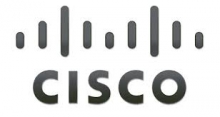Personalisation: Opening doors to growth in China is a report written by the Economist Intelligence Unit and sponsored by Cisco. The Economist Intelligence Unit conducted the analysis and wrote the report, which is the third in a series of briefing papers that focus on China. The previous reports are Unlocking innovation in China and Collaboration in China: Paths to profit. The findings and views expressed in the report do not necessarily reflect those of the sponsor.
To many Westerners, the “Mao” jacket, a blue, high-collared button-down worn ubiquitously during Mao Zedong’s reign in China, symbolised the homogeneity of products available at the time. State-owned companies met government production targets by churning out no-frill, basic goods. China has come a long way; it is now a market economy that pits state-owned enterprises against private and foreign-owned companies striving to meet the fickle demands of consumers at home and abroad. To compete, a growing number of Chinese companies are relying on innovation and customer service to prrovide personalised goods and services.
What is personalisation? It entails the ability to adapt a product or service continually and independently, whether by altering services or by changing product configurations or applications. Fuelled by advances in technology—particularly web-based applications, which connect customers to companies—personalisation takes customisation a step beyond pre-set options offered to consumers, such as the choice of leather or cloth interior in a new car. Examples include Facebook, the social networking site where users create and continually update their own web pages. Another is personalised medicine, which allows doctors to treat patients based on individual characteristics such as weight, age and genetic profile.
Demand for personalised goods and services is driven in part by consumers, who want the option to modify products and services to their specific preferences. For companies, the advantage of personalisation is that it often leads to higher profit margins. More broadly, greater personalisation can serve as a catalyst for innovation by creating a mechanism through which customers can suggest improvements, or insights that can lead to entirely new products or ways of operating.
What is personalisation? It entails the ability to adapt a product or service continually and independently, whether by altering services or by changing product configurations or applications. Fuelled by advances in technology—particularly web-based applications, which connect customers to companies—personalisation takes customisation a step beyond pre-set options offered to consumers, such as the choice of leather or cloth interior in a new car. Examples include Facebook, the social networking site where users create and continually update their own web pages. Another is personalised medicine, which allows doctors to treat patients based on individual characteristics such as weight, age and genetic profile.
Demand for personalised goods and services is driven in part by consumers, who want the option to modify products and services to their specific preferences. For companies, the advantage of personalisation is that it often leads to higher profit margins. More broadly, greater personalisation can serve as a catalyst for innovation by creating a mechanism through which customers can suggest improvements, or insights that can lead to entirely new products or ways of operating.
It is no wonder, then, that Chinese companies are joining the global personalisation trend. An Economist Intelligence Unit survey of executives in China, conducted in January 2009 and sponsored by Cisco, found that personalisation is already having a positive impact on company growth, according to 54% of respondents. Sixty-four percent of respondents expect personalisation to spur growth in the next five years. These numbers are impressive, although lower than the results of a similar, global survey conducted by the Economist Intelligence Unit in 2006 that culminated in a report, Personalisation: Transforming the way business connects. In that report, 68% of respondents worldwide said they had already felt the effect of personalisation, while 82% expected it to help increase growth in the next five years.







